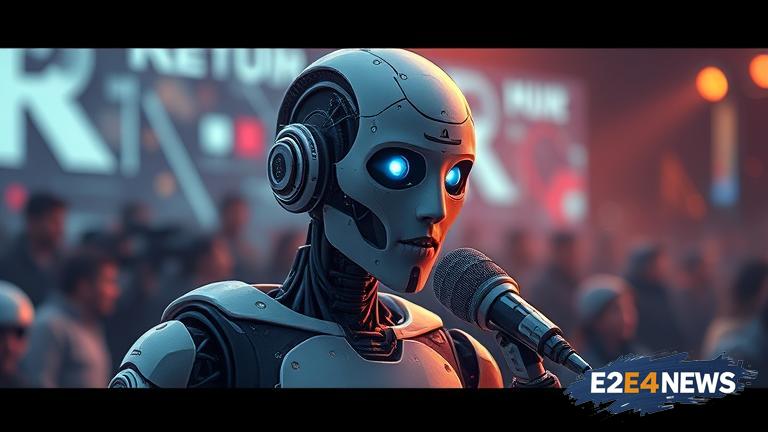The entertainment industry has witnessed a significant shift in recent years, with the advent of artificial intelligence (AI) dubbing technology. This innovation has made it possible to dub movies, TV shows, and other content into various languages with ease and accuracy. However, the rise of AI dubbing has also sparked a heated debate about the future of voice actors, who have traditionally been the backbone of the dubbing industry. Many voice actors are concerned that AI dubbing will replace them, leaving them without a source of income. The use of AI dubbing has already become widespread in many countries, including the United States, China, and India. In fact, several major streaming platforms have started using AI dubbing to cater to their global audience. While AI dubbing has its advantages, such as cost-effectiveness and speed, many argue that it lacks the emotional depth and nuance that human voice actors bring to a performance. Moreover, the quality of AI dubbing is still not on par with human dubbing, and many viewers have complained about the robotic and unnatural tone of AI-dubbed content. Despite these limitations, the use of AI dubbing is expected to continue growing in the coming years, driven by the increasing demand for localized content. This has led to a sense of unease among voice actors, who are worried about their future in the industry. Some have even started to explore other career options, such as voice-over work for commercials or video games. However, others are more optimistic, believing that AI dubbing will actually create new opportunities for voice actors. For instance, AI dubbing could enable voice actors to focus on more creative and high-value tasks, such as directing or producing. Additionally, the use of AI dubbing could also lead to the creation of new job roles, such as AI dubbing engineer or quality control specialist. Nevertheless, the impact of AI dubbing on the voice acting industry cannot be ignored. Many voice actors have already reported a decline in their income and workload, as producers and studios opt for AI dubbing instead of human voice actors. This has also led to a decline in the quality of dubbed content, as AI dubbing often lacks the emotional depth and nuance that human voice actors bring to a performance. Furthermore, the use of AI dubbing has also raised concerns about the cultural and linguistic nuances of dubbed content. For example, AI dubbing may not be able to capture the subtle cultural references and idioms that are unique to a particular language or region. This could lead to a loss of cultural authenticity and nuance in dubbed content, which could have negative consequences for the entertainment industry as a whole. In conclusion, the rise of AI dubbing has sparked a heated debate about the future of voice actors, with many fearing for their jobs. While AI dubbing has its advantages, it is clear that human voice actors bring a unique emotional depth and nuance to a performance that AI dubbing currently lacks. As the entertainment industry continues to evolve, it is essential to find a balance between the use of AI dubbing and human voice actors, in order to create high-quality and culturally authentic dubbed content. The future of voice actors depends on it, and it is crucial that the industry takes steps to support and protect the livelihoods of these talented professionals. The use of AI dubbing is a complex issue that requires careful consideration and planning, in order to ensure that the entertainment industry continues to thrive and produce high-quality content. Ultimately, the key to success lies in finding a balance between technology and human talent, and in creating new opportunities for voice actors to thrive in the age of AI dubbing.
Wed. Nov 5th, 2025
